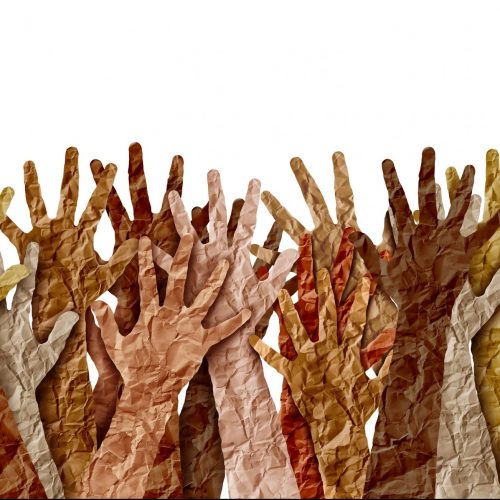

Presented by History Colorado and Colorado Chautauqua
Doors: 6:30 PM
Event time: 7:00 PM
Free event! Click “Get Tickets” to register and secure your spot
Democratic government has been an ideal for many nations – at least in theory. But the opening decades of the twentieth century have witnessed some of the fundamental principles of democratic values being tested as significant social change is met by strong opposition. In many increasingly polarized advanced democracies, debates about the responsibilities of government to its citizens, the limits of individual freedom and rights, and the role of history in national identity narratives abound. Nations that were regarded as successful examples of liberal democracies with strong social safety nets have become more factionalized as their populations become more diverse. Can multicultural democracies overcome these challenges to be just, viable and sustainable?
At a time when many Americans feel that our own democracy is less stable than we assumed, there may be lessons we can learn from the failures and successes of others. Through an examination of the state of democracy in other parts of the world, the panelists and audience for this program will discuss how we might fully realize our own “more perfect union” to face the challenges of the 21st century.
Panelists:
Joe Jupille, Associate Professor in the Department of Political Science, Faculty Research Associate at the Institute of Behavioral Science.
He teaches broadly across European, comparative and international politics at undergraduate and graduate levels. A specialist in the European Union (EU), his research engages the reciprocal relations of rules and politics.
Professor Jupille has written Procedural Politics: Issues, Influence and Institutional Choice in the European Union (2004), Institutional Choice and Global Commerce (2013, with Walter Mattli and Duncan Snidal), and Theories of Institutions (2022, with James A. Caporaso), all with Cambridge University Press. His next book project traces the endogenous development of EU institutions over the long run. His articles have appeared in Annual Review of Political Science, Comparative Political Studies, European Political Science Review, International Organization, and West European Politics.

Yogesh Chandrani, Assistant Professor of Asian Studies and Religion, Colorado College.
Yogesh Chandrani is Assistant Professor of Religion and Asian Studies at Colorado College. He is the recipient of several grants and fellowships including the Fulbright Hays Doctoral Dissertation Research Abroad Fellowship, the Foreign Language Area Studies Fellowship, the Columbia University Travelling Fellowship, the Columbia University Core Curriculum Fellowship, and a research grant from the Samuel Rubin Foundation (New York). Prior to joining Colorado College, he taught at Columbia University and at the Hagop Kevorkian Center for Near Eastern Studies at New York University. His current book project is an ethnographic and historical exploration of the Muslim question in postcolonial India entitled Legacies of Colonial History: Region, Religion, and Violence in Postcolonial Gujarat.

Francisco Rodriguez, Rice Family Professor of the Practice of International and Public Affairs, the Josef Korbel School of International Studies, University of Denver.
Francisco Rodriguez is Rice Family Professor of the Practice of International and Public Affairs at the Josef Korbel School of International Studies, University of Denver. A native of Venezuela, he is the founder of Oil for Venezuela, a non-profit organization finding solutions to Venezuela’s humanitarian crisis. He has held prominent positions such as Head of the Research Team of the United Nations’ Human Development Report Office and Chief Andean Economist of Bank of America (2011-2016). Rodríguez is a frequent contributor to publications such as Foreign Affairs, Financial Times, The New York Times, Americas Quarterly, Foreign Policy and the Washington Post. Dr. Rodriguez has published research papers in academic outlets including the American Economic Journal, Journal of Economic Growth, Journal of Macroeconomics, Journal of Politics and Economic Development and Cultural Change. HIs book Scorched Earth: The Political Economy of Venezuela’s Collapse, will be published in 2024.

Moderator: Claire Garcia, Professor of English, Colorado College.
Claire Oberon Garcia is Professor of English at Colorado College and serves on the State Historian’s Advisory Council. She has published widely on Black women writers and her book on Black Women Writers in Paris is under contract with the University of Georgia Press. A chapter titled “Black Women Writers, Black Internationalism and the Struggle for Citizenship” appeared in Black French Women and the Struggle for Equality: 1848-2015, Félix Germain and Silyane Larcher, editors. Garcia serves on the board of the Collegium for African American Research.

This program is supported with funding from the generous bequest of Betsy Hitchcock.
